In Pictures: Tiffin time in Mumbai
- Published
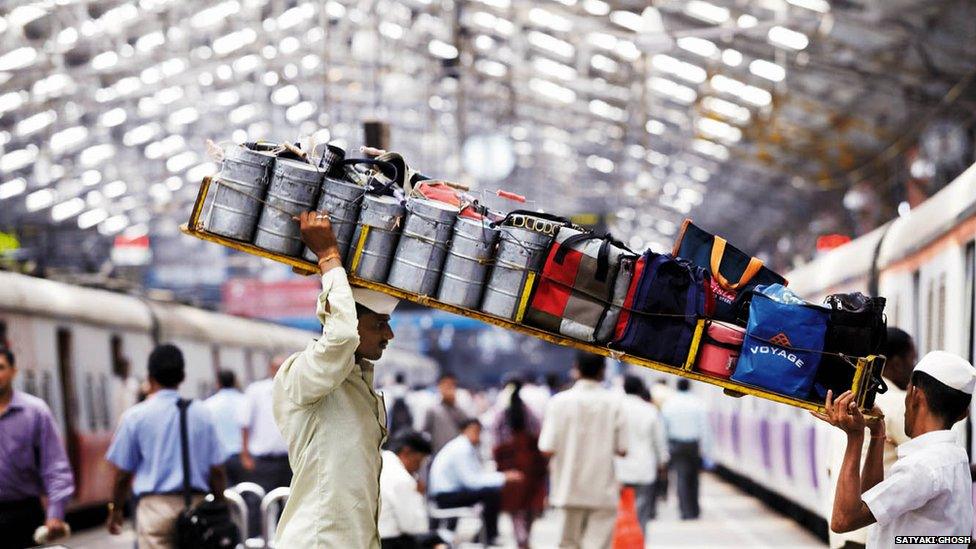
Every day, Mumbai's dabbawalas deliver some 200,000 tiffin boxes of freshly made food from homes to offices in the city. Satyaki Ghosh documented this highly organised trade that has been a feature of the city for more than a century.
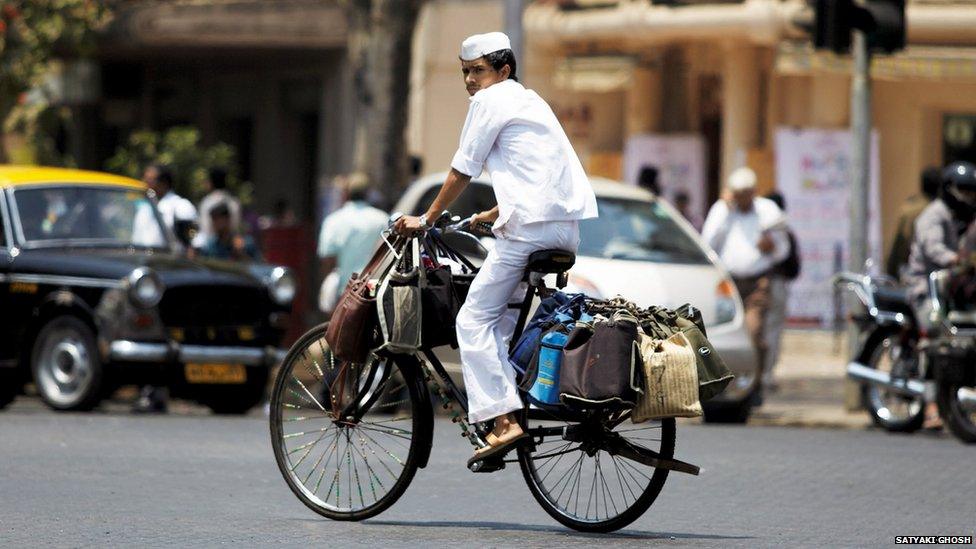
There are about 5,000 dabbawalas in the city. The day begins with the collection of tiffin tins from private homes. These are transported by bicycle to the train station.
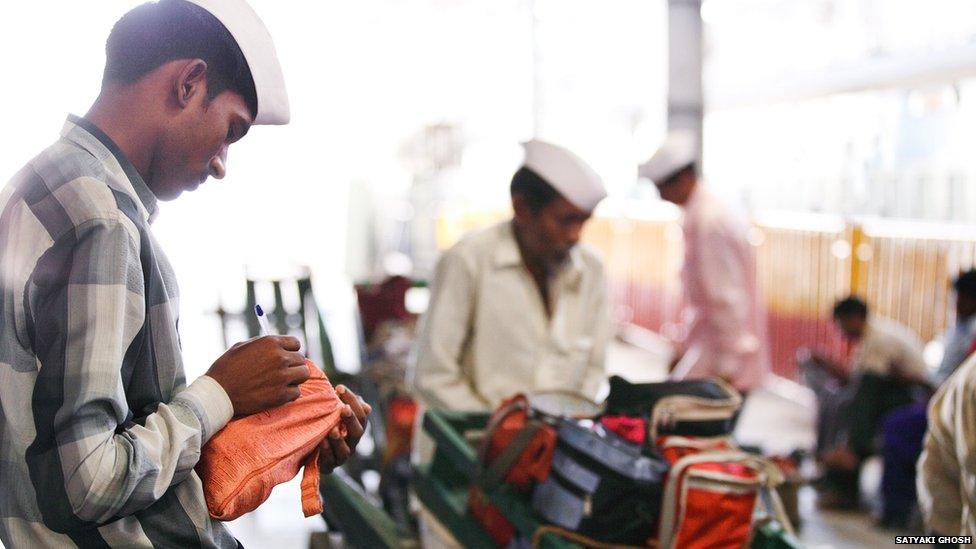
Fellow workers sort the tins into groups depending on their destination.
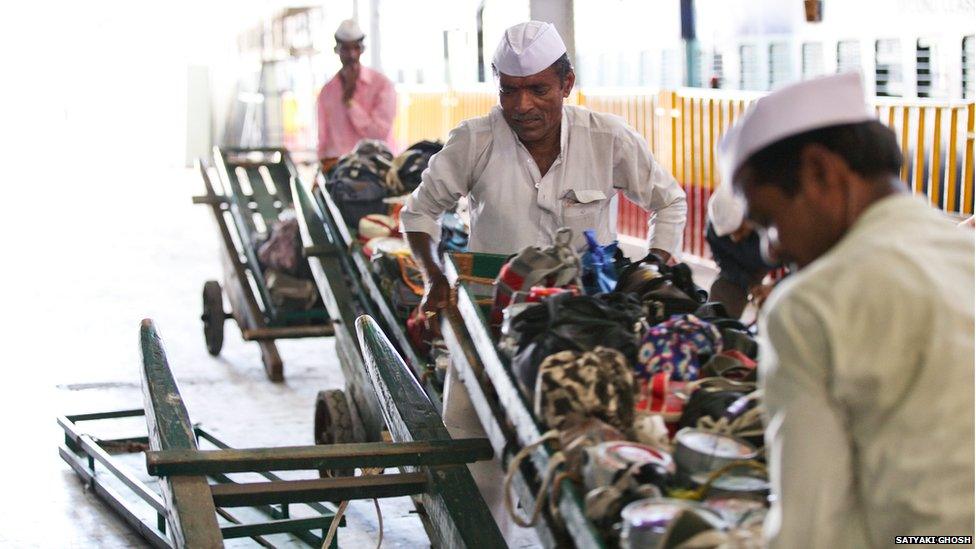
Heavy hand carts are loaded up and then used to transfer the tins to the trains.
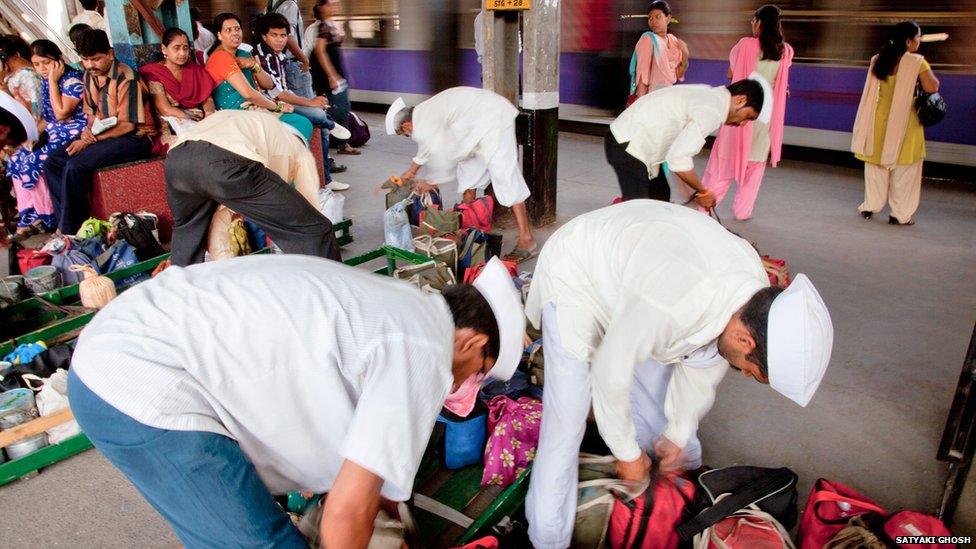
Before loading on to the trains there is some last-minute sorting to do.
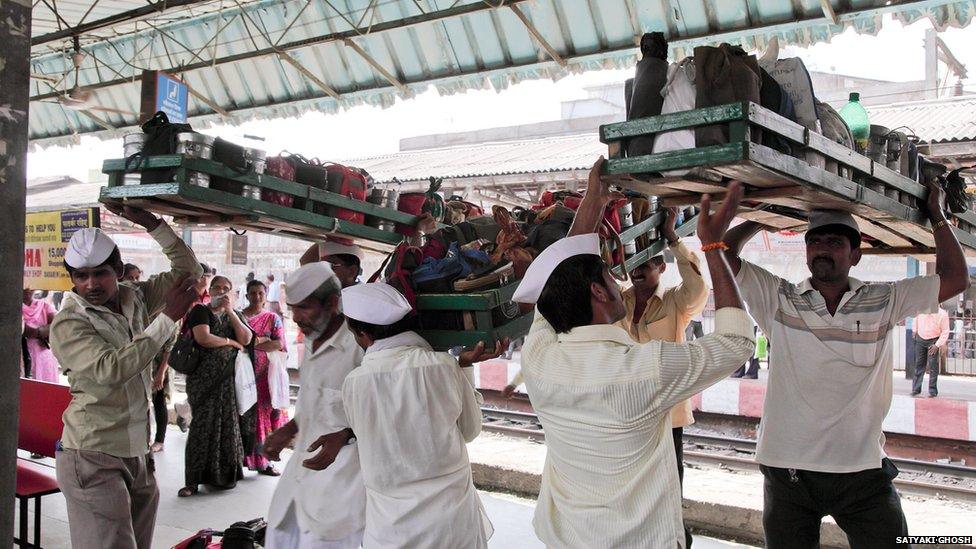
Once sorted, the tins are loaded on to long thin crates, each with a mark to indicate their destination.
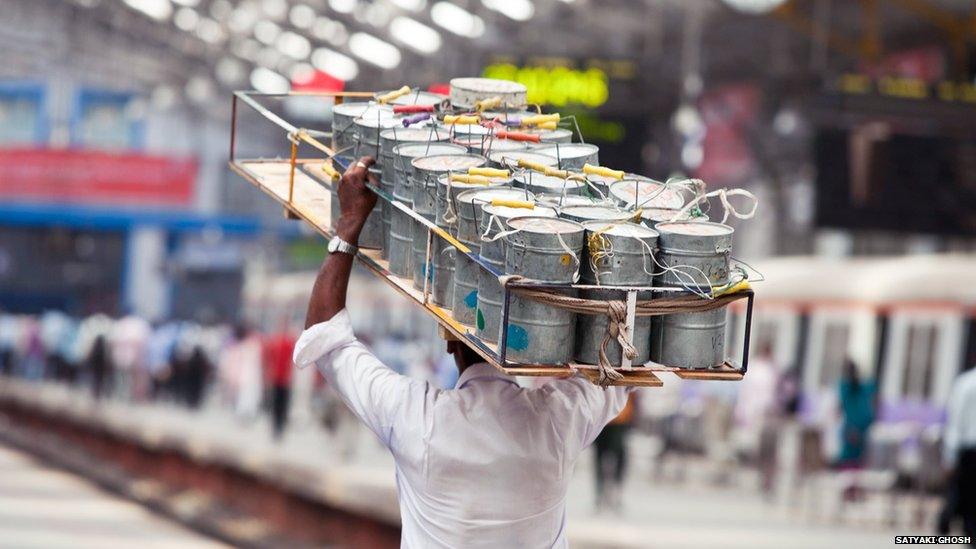
Each tiffin tin weighs about 1.5kg (3 lbs) and changes hands during its journey four or five times.
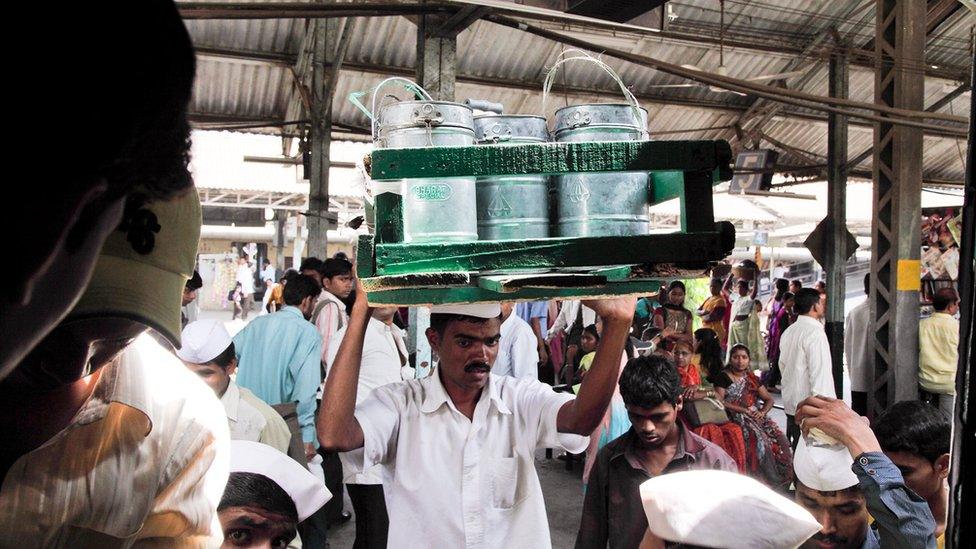
The dabbawala system was first established about 125 years ago by a Parsi banker who wanted to have home-cooked food in his office.
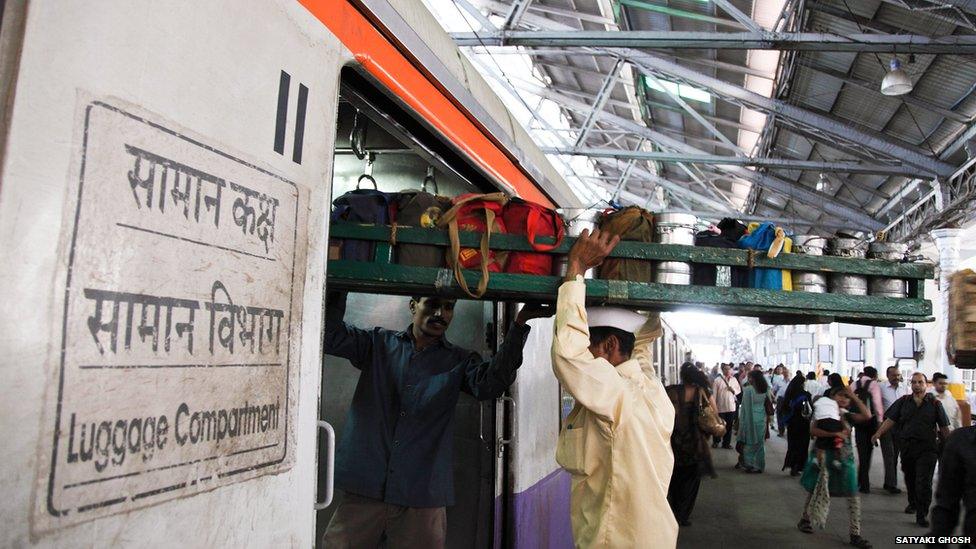
Most trains in the Mumbai area have a designated car for the dabbawalas.
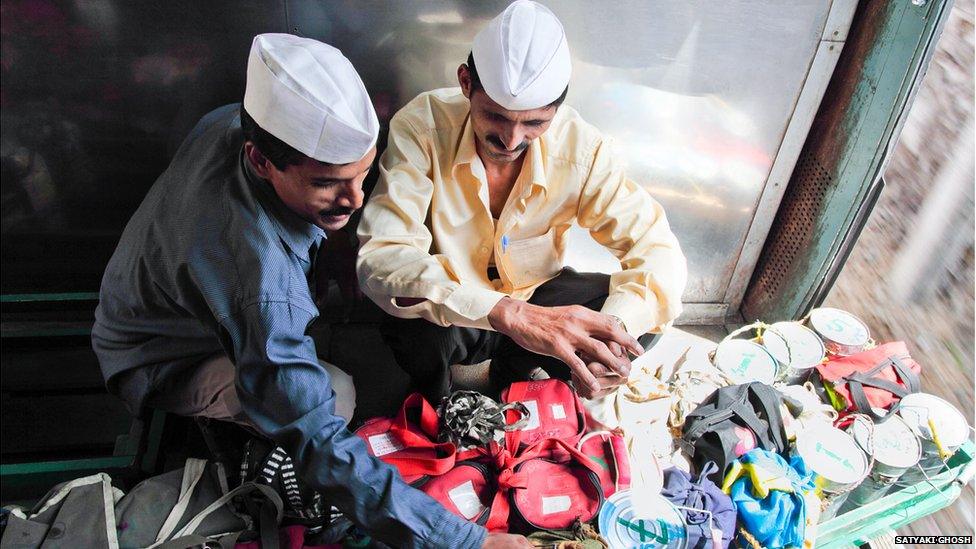
As many dabbawalas are semi-literate, they use a special code of colours and numbers to indicate the station the tins should be sent to and their final destination.
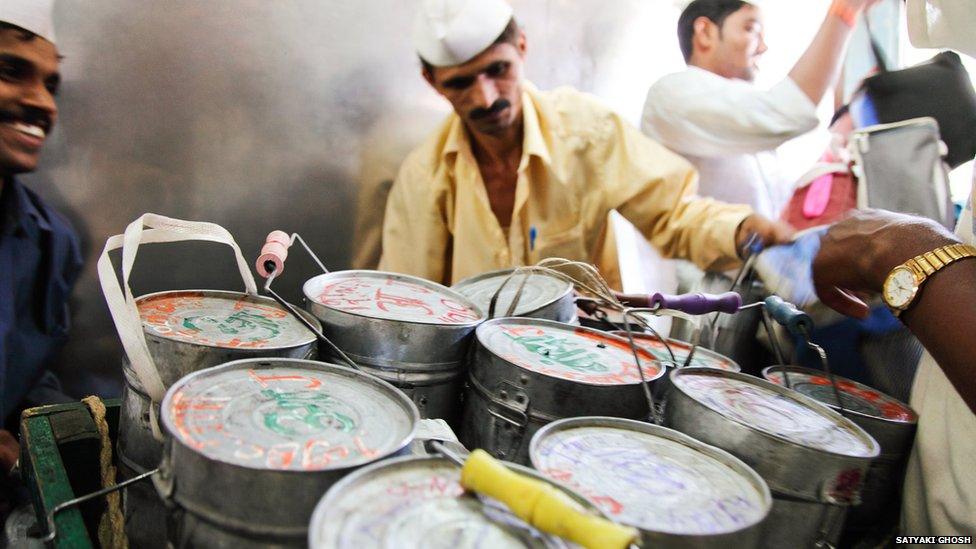
Such is the complexity of the task and the dabbawalas' success at making few mistaken deliveries, business schools have studied their methods.
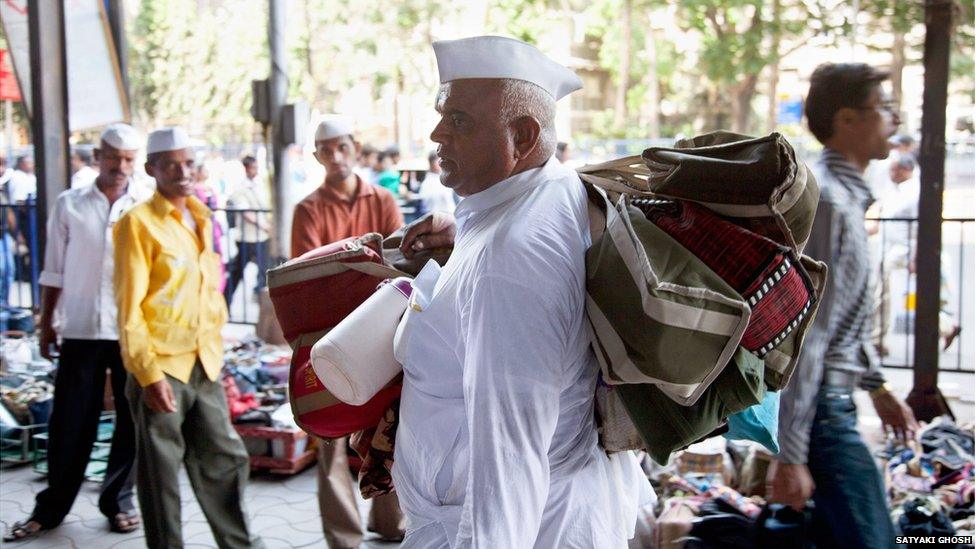
Dabbawalas mainly belong to the Warkari sect from rural Maharashtra in western India.
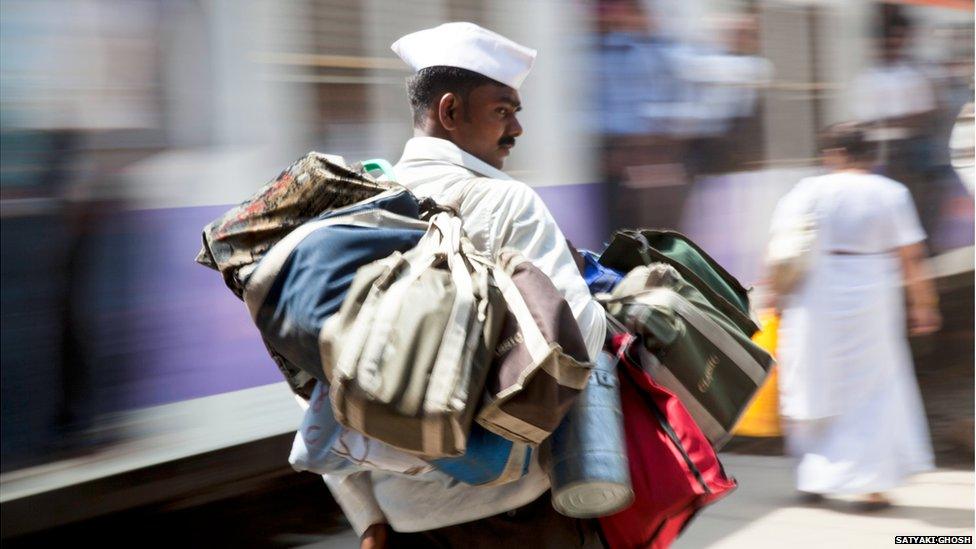
Mumbai's dabbawalas have become famous around the world and representatives even received an invitation from the Prince of Wales to attend his wedding.
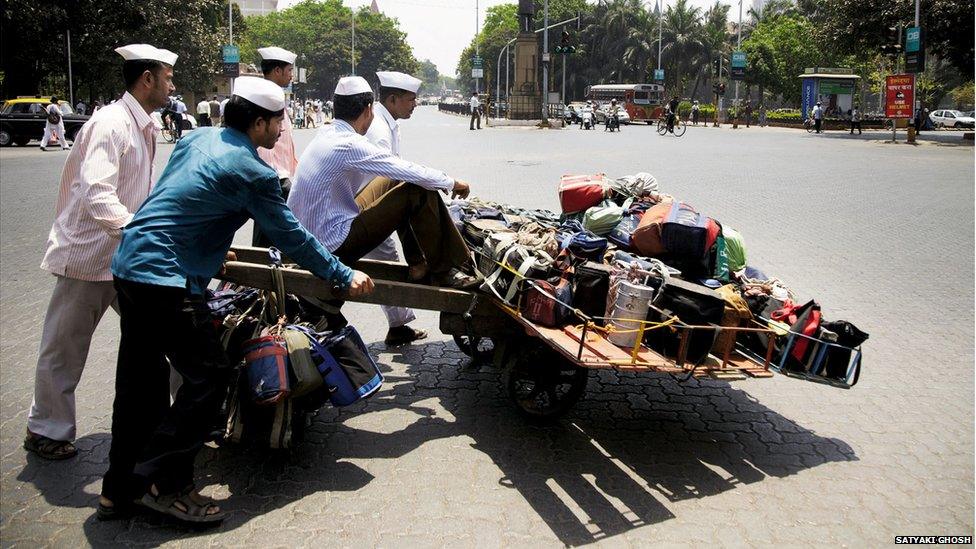
Dabbawalas waiting outside a Mumbai railway station to transfer tiffin tins for delivery